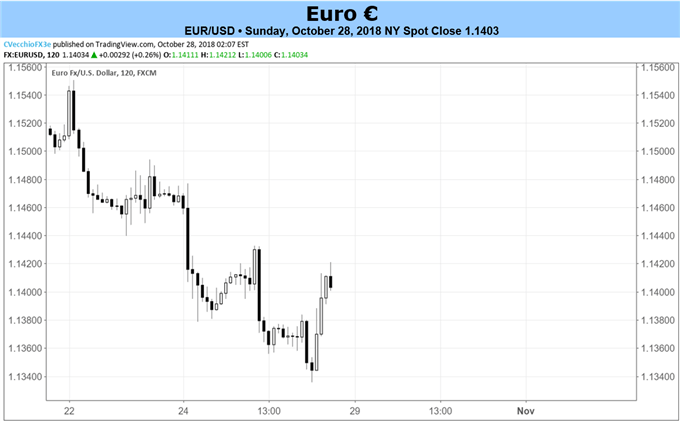
Fundamental Forecast for EUR/USD: Bearish
The Euro was the third worst performing major currency last week, losing ground against all but for the British Pound (EUR/GBP +0.44%) and the New Zealand Dollar (EUR/NZD +0.94%). Amid volatility in global bond and equity markets, the safe haven crosses (EUR/CHF -1.55%, EUR/JPY -0.87%, and EUR/USD -0.97%) were three of the four biggest losers last week. But issues outside of the Eurozone aside, the European Central Bank gave traders reasons anew to sell the Euro.
The Euro took a dive during ECB President Draghi’s press conference after it was confirmed that the ECB will end its QE program in December 2018 and it was also revealed that the ECB could consider other tools as it has in the past (i.e. TLTROs) if it were required to support Italy. Even if President Draghi continues to speak confidently about the inflation outlook, the fact of the matter is that if the ECB is willing to do another monetary support program, then its first rate hike is probably further away than “summer 2019” as previously indicated.
Speaking of, President Draghi’s sharp tone towards Italy was met with an immediate response by politicians on Thursday and Friday, and non-insignificant indication that tensions will continue to run high in the near-future. Traders will want to keep watching Italian BTP yields as they’ve held the most significant sway over the Euro among other assets classes over the past month. For now, post-ECB, the factors have shifted in a more bearish manner for the Euro in the near-term.













Leave A Comment